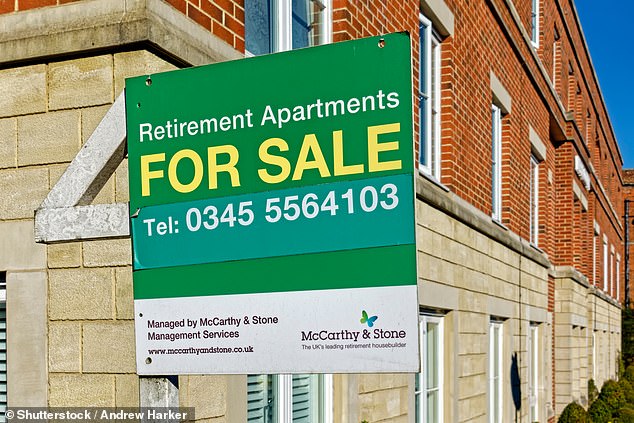Britain’s housing market is not working. Families are desperate for more space, first-time buyers struggle to get a foothold, and older people are trapped in homes that no longer suit their needs.
One of the biggest reasons for this logjam is too often overlooked: the system has failed to provide the kinds of homes people actually want to downsize into.
The evidence is striking. More than 1.2 million over-55s have abandoned plans to move in the past two years, according to the HomeOwners Alliance. A third say the lack of suitable properties has put them off entirely.
Savills calculates that the over-60s now own £2.95 trillion worth of property – but this wealth is frequently locked up because there’s nowhere to move and no way to release it.
The knock-on effects are obvious. Couples rattling around in family-sized houses remain where they are.
The four-bed property they no longer need is unavailable to the young family that’s desperate for more space. The starter home that family might vacate never reaches the first-time buyer. Chains stall; the market seizes up.
This is why downsizing is not simply a lifestyle preference but one of the fastest ways to unclog the housing market. One retired couple moving into a smaller property can trigger two or three other moves down the line. Multiply that effect nationally and the results are transformative.

On the move: Downsizing is not simply a lifestyle preference but one of the fastest ways to unclog the housing market
The trouble is, we’re moving in the opposite direction. Consider bungalows. For decades they were a familiar part of Britain’s housing mix: practical, manageable and adaptable as people age.
They are exactly what millions of people say they want. Single-storey living is easier to maintain, safer, and helps people remain independent for longer. Retirement communities built around such homes also provide something else: the chance to stay connected to neighbours, shops and services.
Yet supply has totally collapsed. National House Building Council figures show bungalows accounted for 11 per cent of new homes in 1990. Last year it was 1 per cent. Since 2010, the figure has never risen above 2 per cent. All the while, demand has grown: nearly five million older people say they would like their next move to be to a bungalow, while nine million want more of them built.
Some developers are starting to respond. At McCarthy Stone, for example, we now have 22 bungalow developments comprising over 500 units either sold out or on sale, making us one of the largest builders of retirement bungalows in the country. But this is still only part of the solution.
The shortfall is partly a function of how the housing system is structured. Planning rules rarely prioritise later-living homes. Land allocation tends to tilt towards other tenures.
Local demand for retirement housing is too often under-assessed. The result is a mismatch between what people need and what actually gets built.
The opportunity is clear. By treating later-living housing as a national priority, on a par with homes for first-time buyers, we can unlock vast amounts of under-used stock. Local authorities should be required to assess demand and allocate sites accordingly. Developers, planners and policymakers can then build homes, including bungalows that meet changing needs, not just demand from first-time buyers.
Britain’s population is ageing fast. But with the right focus, downsizing can become a catalyst for renewal: freeing up family homes, helping first-time buyers, and giving older people the chance to live in places that suit their lives. Far from being a niche reform, this is one of the most powerful opportunities we have to get the housing market moving again.
DIY INVESTING PLATFORMS

AJ Bell

AJ Bell
Easy investing and ready-made portfolios

Hargreaves Lansdown

Hargreaves Lansdown
Free fund dealing and investment ideas

interactive investor

interactive investor
Flat-fee investing from £4.99 per month

InvestEngine

InvestEngine
Account and trading fee-free ETF investing
Trading 212
Trading 212
Free share dealing and no account fee
Affiliate links: If you take out a product This is Money may earn a commission. These deals are chosen by our editorial team, as we think they are worth highlighting. This does not affect our editorial independence.
This article was originally published by a www.dailymail.co.uk . Read the Original article here. .

